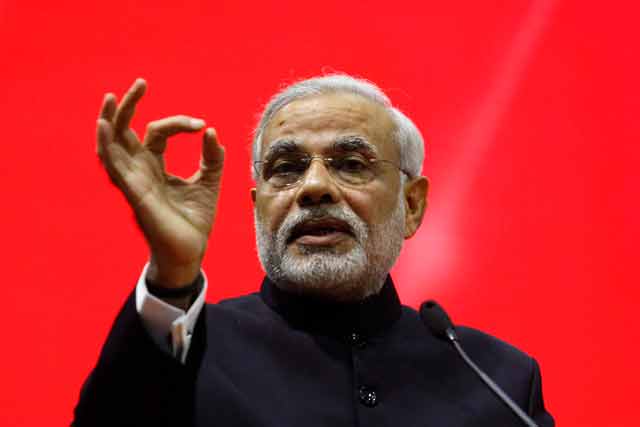Privatisation may not be on Narendra Modi’s agenda, but some kind of public sector reform seems to be underway.
In August, the finance ministry cleared a plan to create a holding company to house the shares of nationalised banks so that their capital requirements can be met more efficiently. With huge non-performing assets blighting their performance, public sector banks need lots of capital to shore up their balance-sheets.
The Hindustan Times reports today (29 October) that there is a parallel move to shift all government holdings in non-bank public sector companies to another holding company which will report directly to the Prime Minister’s Office (PMO). The idea is to improve accountability, since the current structure gives neither bank boards nor the administrative ministries the autonomy to take big decisions, “which leaves scope for formal and informal interference.” A note to create such a holding company is said to have been prepared by the ministry of heavy industry and public enterprises.
If such a holding company structure had been in place under the UPA, ministers like Praful Patel would not have been able to interfere with the workings of Air India and send it down the road to ruin (for details, read here ).
However, as always, this is one more case of preferring second best solutions.
While the move to create holding companies will insulate public sector companies from bureaucratic and ministerial interference, the fact is the Modi government cannot ultimately avoid a decision on more serious public sector reform: this means privatising banks or companies that need more capital or better managerial inputs to revive, survive or thrive.
Air India, for example, will be in perpetual need for cash in a super-competitive civil aviation market. Should it be allowed to continuously bleed the exchequer or be privatised?
Similarly, the centre has so many banks in its portfolio that it simply will not be able to manage them all effectively even with a holding company in place.
Reason: unlike other public sector companies, banks are perpetually in need of capital because they cannot otherwise expand lending. With the social burden on banks increasing rather than decreasing - witness the Jan Dhan Yojana launched by Modi himself, with free insurance and overdraft facilities to the poor - it is unlikely that public sector banks will generate the kind of profits to plough back capital for increasing lending. Collectively, the health of public sector banks is indifferent - if not bad. As at the end of June, 14 percent of bank loans were stressed - either gone bad, or which had to be rescheduled as promoters were facing a tough situation.
This means all but the most systemically important banks - and possibly even some of them - should be privatised and forced to find their own capital. Modi and Arun Jaitley must allow them to dilute below 51 percent in due course.
The problem is that politicians - even one so well clued in like Modi - are usually behind the curve when it comes to understanding what the public wants.
The UPA started raising diesel prices in January 2013 with a great deal of trepidation, but the public took it in its stride. There was no eruption of public angst as diesel prices rose continuously all the way till this October. The UPA lost the election due to corruption and non-governance, not diesel prices.
The Vajpayee government privatised Maruti, Balco, Hindustan Zinc, VSNL and IPCL, but there was no public backlash.
The public does not care who owns banks or non-bank companies in the public sector. It is only the unions and employees who care about this, since it will impact their cosy assumptions about job security.
If Modi cares to look around and even consult the actual public, he may find that privatisation is not something over which he will lose any of his popularity, especially if the reasons are explained well.
The point he needs to make is simple: how many members of the public care if aviation or telecom services are provided by Air India and MTNL or IndiGo, Airtel and Vodafone?
Most citizens know the answers, as is evident from the market shares of the private sector companies concerned.
The public antipathy to privatisation is gone. The only thing Modi needs to ensure is that workers don’t lose their jobs. If jobs are protected by ensuring reductions through normal retirement, attrition or voluntary severance, even employees may not oppose privatisation.
In future, the only logic for retaining any company in the public sector should be one of the following: strategic importance (defence, etc) , systemic importance (as in the case of banks), and areas where private sector fears to tread social infrastructure, long-gestation projects).
It’s time to be bold. The nation has moved on from its public sector mindset, but politicians still think of it as a holy cow. This is one form of cow protection we can all agree to avoid.


)
)
)
)
)
)
)
)
)



